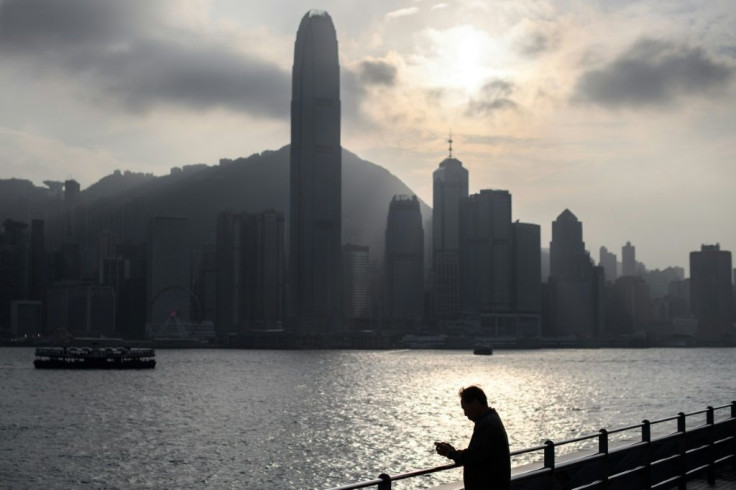Hong Kong Forecasts Record GDP Contraction For 2020, After GDP Shrinks 9% In Second Quarter

KEY POINTS
- Hong Kong's government expects GDP to drop by 6% to 8% this year
- Rhe worst annual GDP contraction recorded in Hong Kong was 5.9% in 1998
- Hong Kong’s unemployment rate jumped to 6.2% in the second quarter, the highest level in more than 15 years.
Hong Kong’s government said its gross domestic product shrank by 9% in the second quarter on a year-over-year basis. That marked the fourth consecutive quarter of year-over-year declines.
On Friday, the city-state’s government also downgraded its 2020 GDP forecast to show a contraction of between 6% and 8% -- versus its prior prediction of a drop of between 4% and 7%.
Bloomberg reported that the worst annual GDP contraction recorded in Hong Kong was 5.9% in 1998, in the wake of the Asian financial crisis.
“The Hong Kong economy remained very weak in the second quarter of 2020, as the COVID-19 pandemic continued to deal heavy blows to global and local economic activities,” said Andrew Au, the government’s economist. “If the current wave of local [COVID-19] infection can be contained within a short time and barring any further sharp deterioration in the external environment, economic performance for 2020 as a whole can hopefully fall within the upper half of the range forecast.”
Domestic demand suffered significantly in the second quarter, Au noted. Private consumption expenditure endured its biggest ever year-on-year drop of 14.2% as “local consumption activities were severely disrupted by the threat of COVID-19 and social distancing requirements throughout the quarter, and outbound tourism came to a halt amid stringent travel restrictions.”
Hong Kong’s unemployment rate jumped to 6.2% in the second quarter, the highest level in more than 15 years.
“The tense China-U.S. relations and heightened geopolitical tensions also fuel uncertainties,” Au added. “On the bright side, the Mainland [Chinese] economy has returned to solid growth and should render some support to Hong Kong's export performance amid a difficult external environment. Yet, it is hard for inbound tourism to recover during the rest of the year given the evolving pandemic and widespread travel restrictions in place.”
CNBC reported that a new wave of COVID-19 broke out in Hong Kong in July, prompting the government to restore strict social distancing rules and a prohibition of large public gatherings.
“Hong Kong’s short-term economic outlook is still highly uncertain,” Au stated.
Hong Kong also faces much political uncertainties – in retaliation for China’s imposition of a controversial national security law on the city-state, the U.S. government recently slapped sanctions on 11 officials, including Chief Executive Carrie Lam. Banks operating in Hong Kong – even some Mainland Chinese-based lenders – are reportedly considering monitoring accounts held by the sanctioned individuals in order to comply with U.S. sanctions.
Meanwhile, pro-democracy activists in Hong Kong continue to protest China's actions.
© Copyright IBTimes 2025. All rights reserved.





















